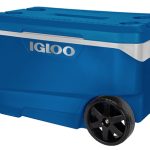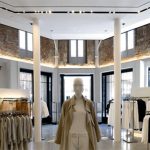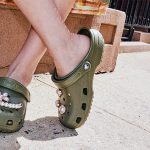Analysts appeared to have a different take on Timberlands first quarter results and future outlook, but those looking at the company in a more positive light gave the company a boost on the street as TBL shares hit a three-year high for the week, closing up 11% for the week to $66.58 on Friday. The companys 64.2% increase in diluted earnings per share bested analysts EPS estimates for the quarter by 25 cents. Not a near miss by any means.
One analyst viewed as problematic the companys increased reliance on upside from the weaker dollar as it grows its international business. The benefits here are expected to narrow as the year progresses and the dollar strengthens against the Euro and the British Pound. Another analyst looked left instead and saw the prospect of a strengthening business west of the Mississippi as a sign of good things to come.
Revenues would have increased 11.7% in the quarter, excluding the effect of the weaker dollar.
The International business grew 14.6% in constant dollars, with Europe revenues growing 26%, or 11% in constant dollar terms, driven by “strong gains” in the U.K. and double-digit in Germany, Spain, and Scandinavia. The European market saw double-digit constant dollar gains in mens casual boots and kids footwear, more than offsetting declines in apparel sales which the company sees continuing throughout the year.
Asia revenues were up 35%, or up 27% in constant dollar terms, driven by double-digit constant dollar gains in Japan, Hong Kong, Malaysia, and Taiwan. TBL said efforts to upgrade retail and wholesale distribution in the region are bearing fruit as the company opened five new specialty stores while closing three that did not meet “goals for more premium brand positioning”.
The U.S. business was driven by the Consumer Direct unit, which was helped by a 6.1% comparable store sales increase, the addition of three outlet stores in Q4 2003, and a rapidly-growing Internet business.
U.S. wholesale footwear gains were offset by modest overall declines in wholesale apparel. Timberland-branded, or “Tree” apparel, grew at strong rates in Q1, boosted by “solid gains” in department stores and expansion in the independent distribution. Those gains, however, were offset by declines in Pro apparel, which was negatively impacted by a strategic position by Sears to deemphasize work apparel as a category in their stores.
Timberland is targeting “mid- to high-single-digit revenue growth” for the balance of 2004.














